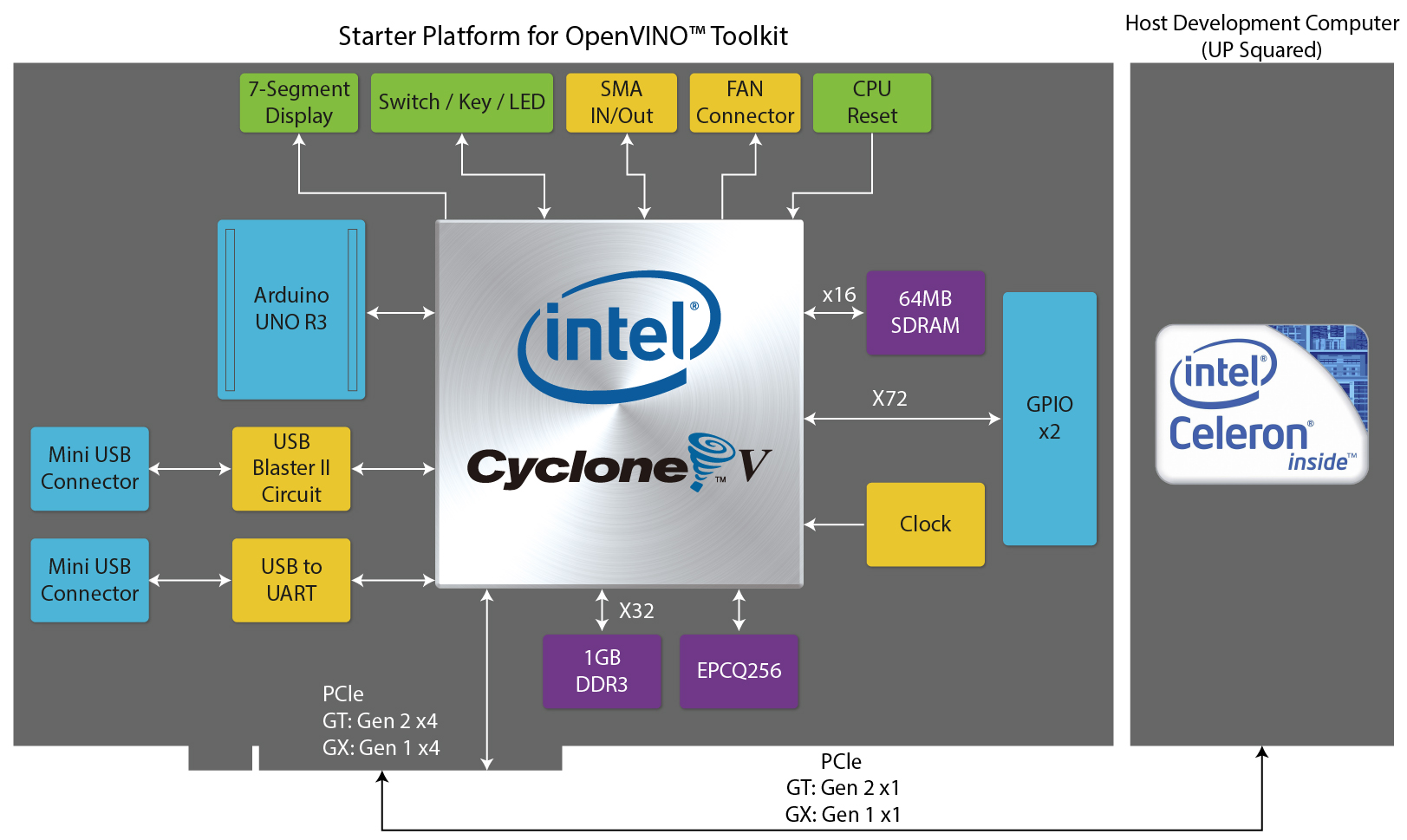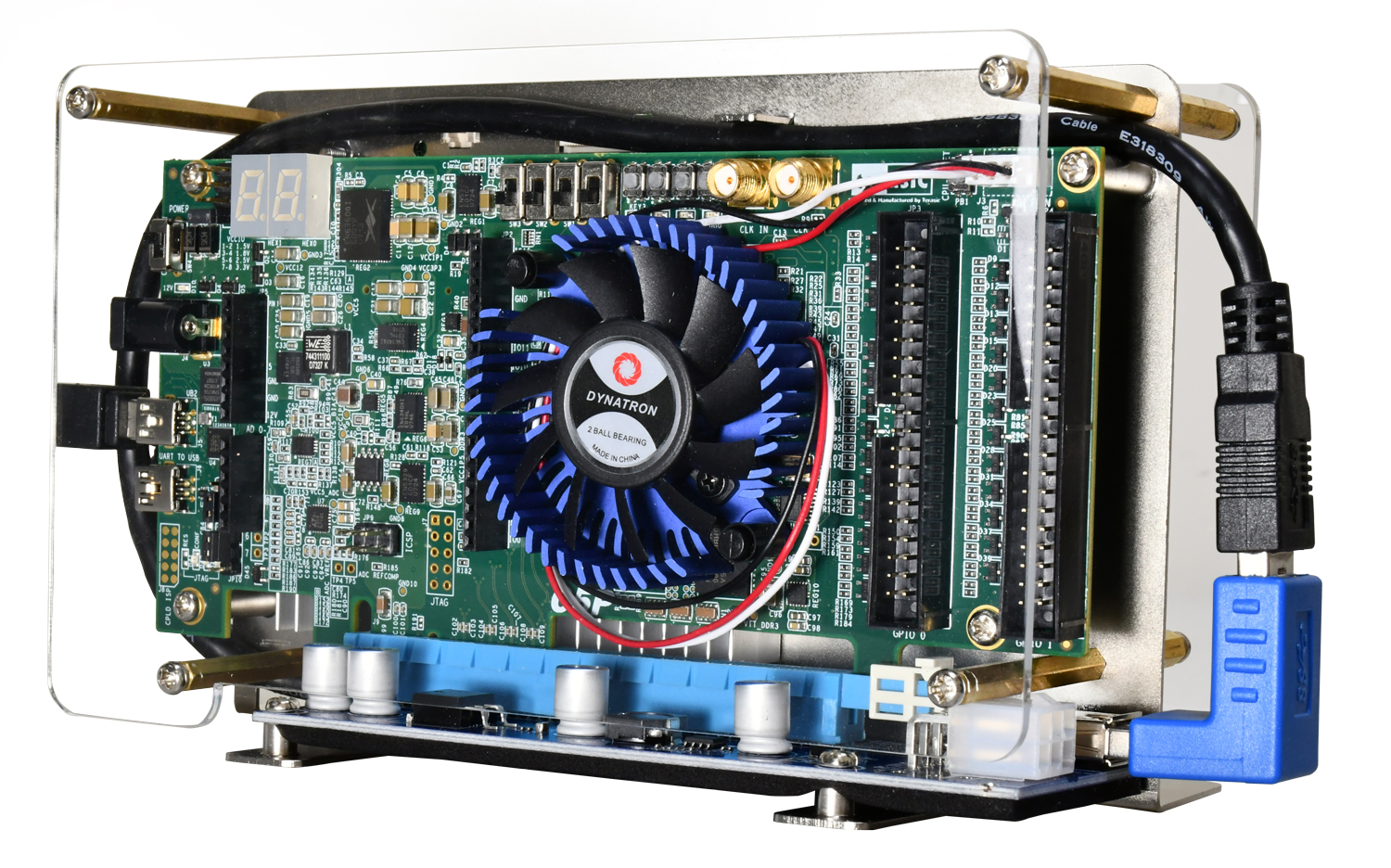The package of Developer Kit for OpenVINO ™ Toolkit includes reference designs for all the peripherals onboard. It also has a detailed user manual for developers to follow and start building up a system according to their needs immediately.
The Developer Kit for OpenVINO ™ Toolkit is a perfect starting point as OpenCL HPC (High Performance Computing) development platform. It supports Intel FPGA OpenCL BSP for developers to design a system with high level programming language. The computation demanding tasks can be off-loaded from CPU to FPGA, resulting in significant system performance improvement.
Specifications
CPU System:
- CPU: Celeron Dual Core
- Memory:
- 32GB eMMC
- 4GB DDR4
- Interface
- Mini PCIe
- Ethernet
- HDMI
- UART
- USB
- Power Input: 5V DC
FPGA System:
- FPGA: Cyclone V 301K LE
- Memory
- EPCQ256
- 64MB SDRAM
- 1GB DDR3 SDRAM
- Communication
- UART to USB
- GT device supports PCIe Gen2 x4 (GX device supports PCIe Gen1 x4)
- Expansion IO:
- Two 2×40 Expansion IO
- Arduino Uno Revision 3 Expansion Header
- SMA In/Out
- On-Board USB Blaster
- Power Input : 12V DC
- LED/7-Segment/Button/Switch
Block Diagram of FPGA System

Layout


Resources
OpenVINO Development Guide – Download
Developer Kit for OpenVINO™ Toolkit Quick Start Guide – Download
Kit Contents

- Developer Kit for OpenVINO™ Toolkit
- USB 3.0 Cable for PCIe Conversion (Installed)
- Mini USB Cable (installed)
- 12V Power Supply (for FPGA Board)
- 5V power Supply (for PC system)

